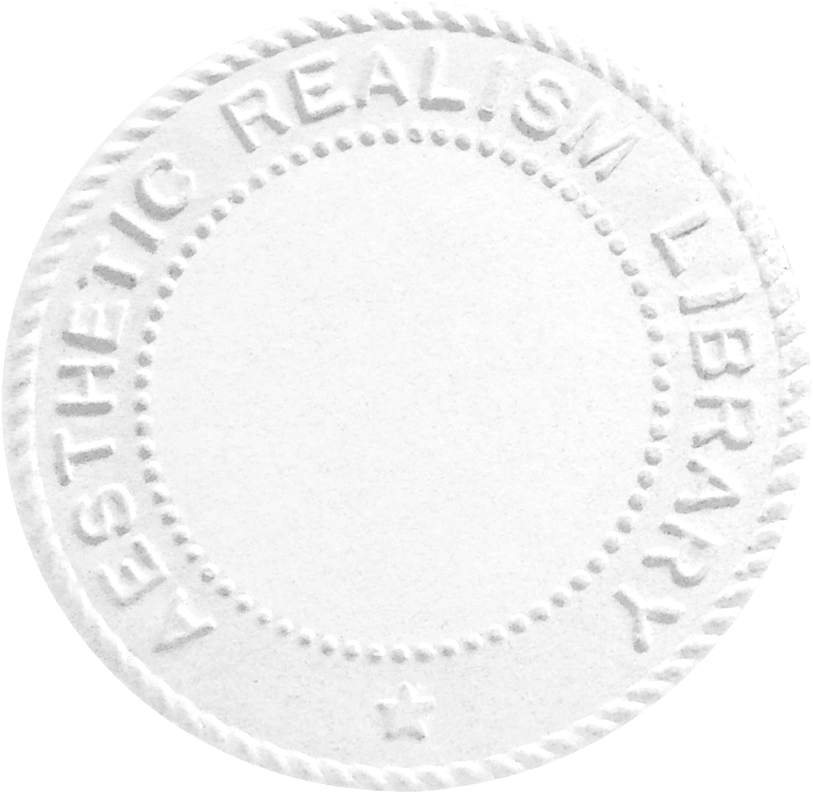Poetry of Eli Siegel
Local Stop, Sheridan Square
I
The subways, as usual, take emotions north and south.
When you are in a subway, emotion goes with you.
Emotion for thousands has come to a stop at Christopher Street, which is another name for Sheridan Square—
And the General who rode so greatly,
Is waiting for you in a new form.
There is a little park to the left
That has had emotion enough in it to give new life to Greenland.
But when you come south on the subway and emerge
From rumbling and dark and steps and platform,
The first thing you see is space—
Blessed, hopeful space, in a city as large as any.
Streets converge—Barrow, Grove, Seventh Avenue, Christopher,
But there is space
And that means there is possibility: for space, somewhere, as a philosopher might see it, is the same as possibility.
II
When people got out of the Local Stop at Sheridan Square,
There was possibility in the emotion they had.
It was a world seen anew, maybe, or a girl seen as more friendly.
People have come south, all these years, on the Seventh Avenue subway,
With possibility as another name for themselves;
And possibility is never wholly unfaithful,
For is it not always possibility?
III
Sheridan Square with its converging streets and space
Is the headquarters of possibility in this land.
It has been that for many persons
Now with homes, resources and thoughts elsewhere than at a local stop in Greenwich Village.
The local stop is remembered in towns, colleges, farms, banks, libraries, churches, synagogues, rooms:
In the United States as just the United States.
IV
Up those steps at a local stop
People went and there was a new pat in their hearts,
A new looking-for-something in their lives,
And, with all the indications saying otherwise,
That looking-for has not been wholly deceived or disappointed.
V
The space and the streets at this local stop, Sheridan Square, are too much like reality itself to play ignoble tricks.
After all, a subway stop in New York City is as much of things as a wooded place in Saskatchewan,
Or a level hot area in New Mexico.
And the people who have been within this space and on these streets
Could not lessen its factness as immeasurable in possibility.
VI
Once when you got out of the station, the local stop, of this Sheridan Square where streets come together and space says Hello,
There was Hubert’s Cafeteria in front of you, if you were looking just that way.
Those who once of an evening, of late night—of an afternoon, too,
Were there
Are now in the life of America, in all its regions, divisions, localities, districts—in all America.
Some of the Hubert’s visitors and lingerers are dead.
(The dead had expectations.)
Hubert’s Cafeteria sounds funny, rather low,
But emotion was there,
And spread out wherever spreading could be—
Some of it is now on a ship half-way across the Atlantic—
Some of it is now on a plane three-quarters across the Atlantic.
VII
Births, marriages, deaths have found Sheridan Square indispensable.
And this afternoon—fairly late—many people coming from the north will get out here.
They live nearby.
They came from the north once, when they did not live nearby.
They now do.
Living nearby in this world, to this world, can be right.
For seeing the world nearby:
Sheridan Square is a mobile, feverish, historical, everlasting, real and real place to begin with.
It is a local stop.
From Hail, American Development (Definition Press)
© 1966, 1968 by Eli Siegel



Eli Siegel’s note to the poem:
Local Stop, Sheridan Square. 1966. There are places in America known because something happened there and people wanted to remember what happened. Something happened near Concord Bridge—and it was remembered, among others by Emerson in a poem; something happened at Little Round Top in the neighborhood of Gettysburg, and that too is remembered. Then there are places where something goes on or occurs, and there is no one great occurrence cherished by an historian or poet. The place written of in this poem is where there was Expectation and there was Strangeness and there was the New-and-the-Old as one thing: for there was the “heard of” now become the visible. When people emerged from the subway stop at Sheridan Square, they did feel a little like Columbus on a new shore, or like a New Englander at last in the town of England associated with his dear genealogy. Surely, there are differences; yet there is no doubt that Sheridan Square—the seeing of it—has caused emotion. The emotion was different in 1916, in 1926, in 1936, in 1946, in 1956, and in 1966—but an emotion was. With all the prevalence of the Greenwich Village Weltanschauung and Selbstanschauung—less picturesquely, Worldview and Selfview—in many parts of the country other than Greenwich Village, this portion of New York is irreplaceable in the redolent, thoughtful, sinister, unrestrained possibilities of feminine and masculine America. Something of why, it is hoped, is in the poem. The Long Island shore could be written of in lines of many syllables by that Long Islander, Brooklyner, Manhattaner, and Greenwich Villager, Walt Whitman. Sheridan Square, Local Stop, deserves some long lines too, the melody of which has been thought about.
Note: Eli Siegel read this poem in a 1972 class Greenwich Village Is in the World. To read Ellen Reiss’s report of that historic class, click here.